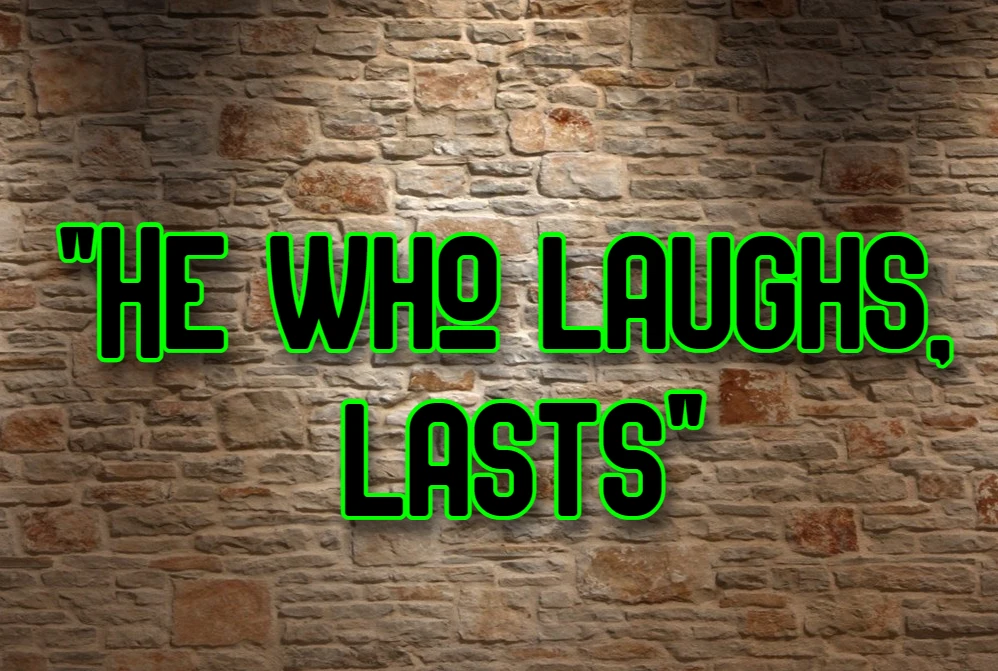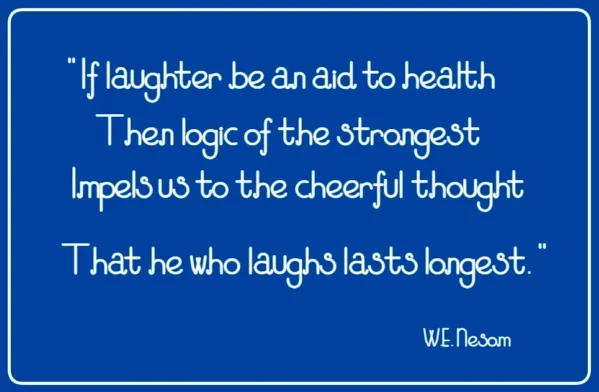
Humor is the best medication we can put in our pillbox.
Mary Pettibone Poole¹ wrote a clever rendition of an older expression, “He who laughs last, laughs best.” Simply said, “He who laughs, lasts.” If we could only laugh more, our lives would be enhanced!
Henry Ward Beecher² said, “A person without a sense of humor is like a wagon without springs; it’s jolted by every pebble on the road.” Intuitively, we know that laughter is one of our best tools to deal with stress, but it is typically not the first remedy that comes to the surface. Anger, frustration, and irritation rise up automatically, and it takes some time and a loftier perspective to see that a laugh, chuckle, or just a smile may neutralize our concern.
Scientists explain that the primitive (“lizard”) brain is our basic fight or flight response mechanism. Its purpose is to save us in life-threatening situations. But our higher brain, some call it the “wizard” brain, involves cognitive thought processes such as empathy, reflection, and understanding³. I would wager that laughter is part of the “wizard” brain.

A good sense of humor is a sign of psychological health. Along with gratitude, hope, and spirituality, they help us forge connections to the world and provide meaning to life. We all know someone who is focused on the darker side of things and carries a very pessimistic approach. William Arthur Ward, the author of Foundations of Faith, said “A well-developed sense of humor is a pole that adds balance to your steps as you walk the tightrope of life.” As we age, a sense of humor is even more important.

(The above was borrowed from Daily Cures: Wisdom for Healthy Aging, by Connie Mason Michaelis)
Read more:
¹The Quote Investigator – Tracing Quotations. He Who Laughs, Lasts – Quote Investigator®
²Henry Ward Beecher. Henry Ward Beecher – Wikipedia
³Lizard Brain or Wizard Brain? How Can You Tell if You’re Thinking with Your Lizard Brain or Wizard Brain?


